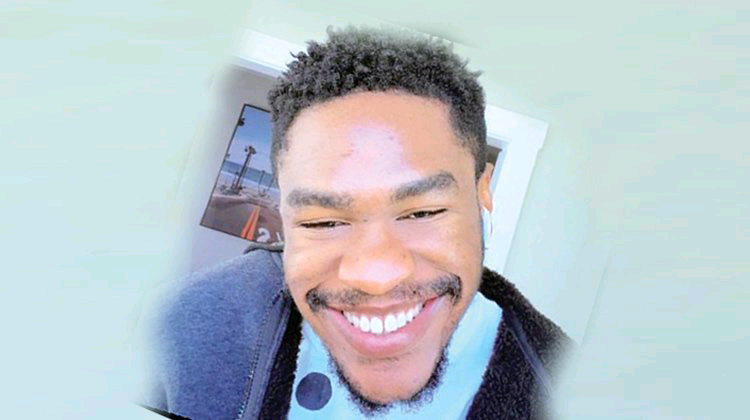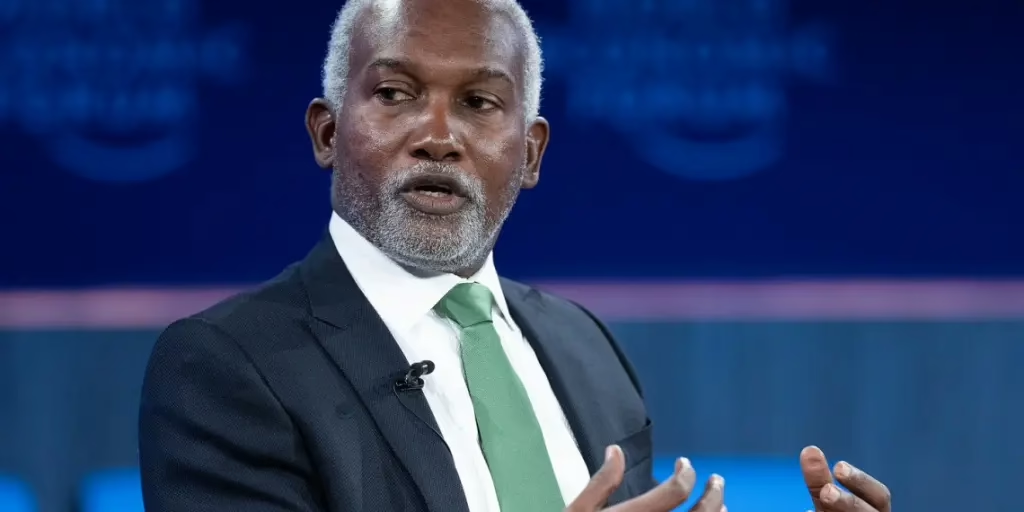A master’s student in the United States and an indigene of Orlu Local Government Area, Imo State, Chimee Adioha tells GODFREY GEORGE how his father was whisked away by gunmen and later released after a huge ransom was paid
It was reported that your father was kidnapped by some gunmen in Orlu, Imo State. How true is it?
I don’t like the term ‘gunmen’, but I need to start telling myself the truth. The reality is hitting now. So, yes, it could be gunmen, because they had guns, and they were all men. They kidnapped my father in our hometown, Orlu, Imo State, where I had lived most of my life as a child. He is a retired teacher.
How did this happen?
It was on July 20, 2022. The gunmen came to our house, looked for my father and found him. Actually, they said it was the second or third time they were looking for him and never found him until that day. They had said if they didn’t see him the third time, they would take my mother instead. But they saw my father, blindfolded him, then they wanted to drive him away in his Toyota, but suddenly, the car did not start, so they held him and put him into their own jeep and drove away.
My father said the drive lasted for about 30 minutes. That was his rough calculation. I don’t know how someone would be blindfolded, in a place that has had records of insecurity, driving for all that long and there were no checkpoints, no police, nothing; just free driving and getting to their destination so safely.
How did you learn of the kidnap?
It was afternoon in Nigeria, but morning in the US. I had just woken up and then went back to sleep before working on the computer. I felt a little tired. Then a cousin called me, asking about a message he had seen in our extended family’s WhatsApp group, that my father was kidnapped. I had not seen any WhatsApp messages and I was both confused and frustrated at that moment. I opened WhatsApp and then saw the messages and then it dawned on me that it was real. This was happening so close, although I was too far away from home. I mean, I had always heard about kidnapping, but I hadn’t really had it so close, and then this was happening in my hometown, a place that was supposed to be so peaceful. It’s so heartbreaking how Orlu has been in the news for insecurity since 2021. I was trembling and I had to leave my door open for days to be sure I was not the only one in my apartment. My housemate was very helpful. I had panic attacks and my anxiety disorder rose.
Why do you think your father was targeted?
That was the surprising thing to me too. My father is not wealthy. We grew up in a very simple house. My parents have lived in our hometown for many years. My father says he was tired of those lower middle class and upper middle class confused categorisation because Nigeria does not even afford you that economic and social label. “Just say you are comfortable,” he says. My father studied Educational Psychology in Italy in the 70s and worked as a teacher and a principal for many years in Anambra and Imo states before he voluntarily retired. We have a house, and a car, just like a human being should. These are not supposed to define wealth. They are essential human necessities, if you ask me. My father is a Catholic Knight of St. Mulumba, kept a lot of psychological books on his shelf, someone who talked less and spread love, had tea each morning of his life, drink decaffeinated coffee and loves rice.
But from what we see now, kidnapping in Nigeria is about if they (kidnappers) feel you have people that can raise ransom money; if they feel you have children in America or in the UK, who are students, who are probably on scholarships and do not have up to a $100 in their bank accounts, you are simply a target. They do not really care. You don’t have to do extra. You don’t even have to own a car or a house. The eligibility criterion is just to be a human being who is breathing. You could be going to the shop down your street to buy bread and egg and you could get kidnapped; you could be in a bus traveling from Orlu to Owerri or Onitsha to Enugu and get kidnapped. Just be breathing, then you are a target.
When and how did the kidnappers reach out to your family to demand ransom?
They reached out on the second day. We were not too surprised because people told us they do not usually reach out on the first day. They used my father’s WhatsApp to send bundles of voice notes, asking that they also speak to my brother. They said they only wanted to be speaking to one person, and that was my brother. I listened to some of the voice notes; I couldn’t listen to everything because the man’s voice scared me. He spoke too fast, with a different Igbo dialect, with weak English, with a commanding tone, both commanding and kind. So, it was a whole voice note festival, my brother sent, they sent, my brother sent again, asking to hear my father’s voice and they sent back the next day with my father’s voice. It seemed the place had steady music. There was always local music in the background, the music you can’t really place who the singer was, but it appeared like it came from a very large speaker. When they said we should not involve the police or any sort of security network, there was music in the background; when they said the amount of money my brother was proposing was “too tiny, as tiny as an ant,” there was also music in the background. Music every time that I wondered how they slept, how my father slept with all that music, someone that always wants everywhere noise-proof to be able to sleep.
What were their requests?
Their request was money. They wanted money. A lot of money that would buy several pieces of land in Owerri and maybe there will still be some change left, depending on the location of the land. They just wanted money. I remember my father’s major voice note. He said, “You must have heard that these people are holding me; please tell your mum, tell everyone, find money and bring it to these people, they are good people, they have assured me that all they want is money, my health condition was good yesterday, but I can’t explain it now, and I don’t know what it will be by tomorrow.” His voice was too slow and too trembling. If we had all that money, we would send it that second. But no, that kind of money was not in my mother’s bank account, but it came on the sixth day because they had given us seven days to pay the ransom.
How did your mother react to this very sad incident?
I consider my mother a very strong person. She has so much energy, you know that sort of energy that speaks. She works like a machine or an engine or something like that. She was a Fine Arts teacher, and then a school principal in one of the Girls’ Technical Colleges in the region. She did all that for 35 years. The first time I called her, her voice was too assuring, too relaxed, too hopeful. She was in the house with our home help. They were saying the rosary, scared but not scarred. But that strong voice went down the second day and the third day. Her voice shivered and she asked a lot of questions, answering phone calls upon phone calls, skipping meals. It was becoming too evident that the incident was hitting her. She was mostly concerned about my father’s health. His blood pressure was shaking the day before he was kidnapped. He had had a doctor’s appointment that required him to pause his medication for a few days, then the kidnap had to happen in the middle of those few days of special monitoring. It was risky and she feared if he would survive whatever condition he was being subjected to.
How and when was your father eventually released?
He was released on the seventh day after my uncle and my brother’s friend went to deliver the ransom on the sixth day. His legs were chained. He was dropped by the side of the bush in the middle of the night, his phone had been taken away from him and his clothes were torn. A motorcycle conveyed him to our house. My mother said he was dropped in front of the house like a large sack, like someone who had nothing. He was limping. He moved out the same day because he could not sleep in the house. He needed to not remember many things.
Did he have to visit the hospital after his release?
He has been visiting doctors and seeking accessible therapy. We speak and laugh and say many things about the incident. He says if he survived those people, then he could survive every other thing in this world. But he mentioned how they were happy to give him food, rice and stew; went to town to look for his drugs, even when his drugs mostly did not come from Nigeria, but they found alternatives. My father could not take the drugs because he needed to be sure what the status of his blood pressure was before he could take them, then they went and bought him a new blood pressure monitor so he could check himself.
In what kind of condition was he kept by the kidnappers?
He said the room was always dark you wouldn’t know when it was day or when it was night; but you could know by measuring the space between breakfast and dinner or lunch and dinner. My mother says it is like dying and resurrecting again. But I like that he could laugh and say things that made him feel like he won, regardless of all that money that was packed in a bag and delivered to them.
Do you think his kidnap is connected to activities of IPOB and ESN in the South-East?
I do not think this has anything to do with IPOB or ESN. It’s not really fair to place the two in the same sentence. We all know what it is. It is very simple – it is bad governance and it is insecurity. It is also poverty. I am not saying poverty should motivate you into being a terror to other people. My point is this: those kidnappers are likely to be severely uneducated, they are also unemployed, they have also become criminals, and all these can be traced to how the government is functioning, government everywhere, both federal and state, with no exceptions. The system is giving birth to more and more chaos. It will continue if the state does not address issues relating to these things I mentioned earlier. Nothing seems to be working for ordinary people.











Leave a Reply